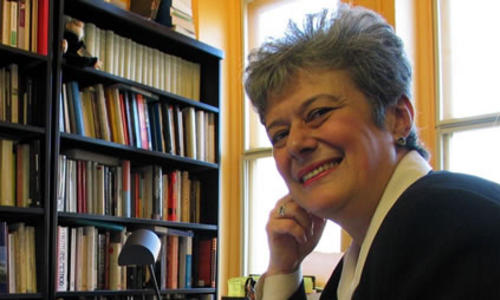Linda Hutcheon

“Points of Contact”: Co-Positioning Improvisation and Adaptation Theory and Practice
An Interview with Dr. Linda Hutcheon
Dr. Linda Hutcheon, an Officer of the Order of Canada and University of Toronto Professor Emeritus, is a recognized scholar of adaptation theory as well as an ICASP Advisory Board member. In the following email interview with ICASP graduate student Stephanie Hill, Dr. Hutcheon talks about the relationship between improvisation and adaptation. Her seminal book, A Theory of Adaptation, is an extensive and multi-contextual survey of contemporary adaptation. In it, she challenges the fidelity model of adaptation and speaks to the driving forces behind the creation of adaptations. Given Dr. Hutcheon’s participation in interdisciplinary and collaborative scholarship and her work in “what art teaches us about theory” (“Linda Hutcheon”), Stephanie Hill was eager to hear what Hutcheon might have to offer in terms of a comparison between improvisation and adaptation practices. Dr. Hutcheon’s support of ICASP in combination with her expertise in adaptation studies give her a unique positioning from which to consider the two fields together.
As Hutcheon puts it in the interview:
Well, not all adaptation is improvisation, as I understand it. First of all, improvisation is usually (always?) extemporaneous, isn’t it? And most adaptation is not. But improvisation very often involves adaptation. It might be a matter of degree, ranging from (in music) free jazz to jazz 'standards.' In other words, if a musical piece is an improvisation on a theme (melody) or the notes of a chord (harmony), or maybe even a song form or style, it would definitely be considered an adaptation of that element. In other words, adaptation is the word we tend to use to describe an overt and indeed defining relation to another prior text: it is an adaptation OF something.
To read the full transcript between Hill and Hutcheon on the relationship between the fields of improvisation and adaptation, click here.
